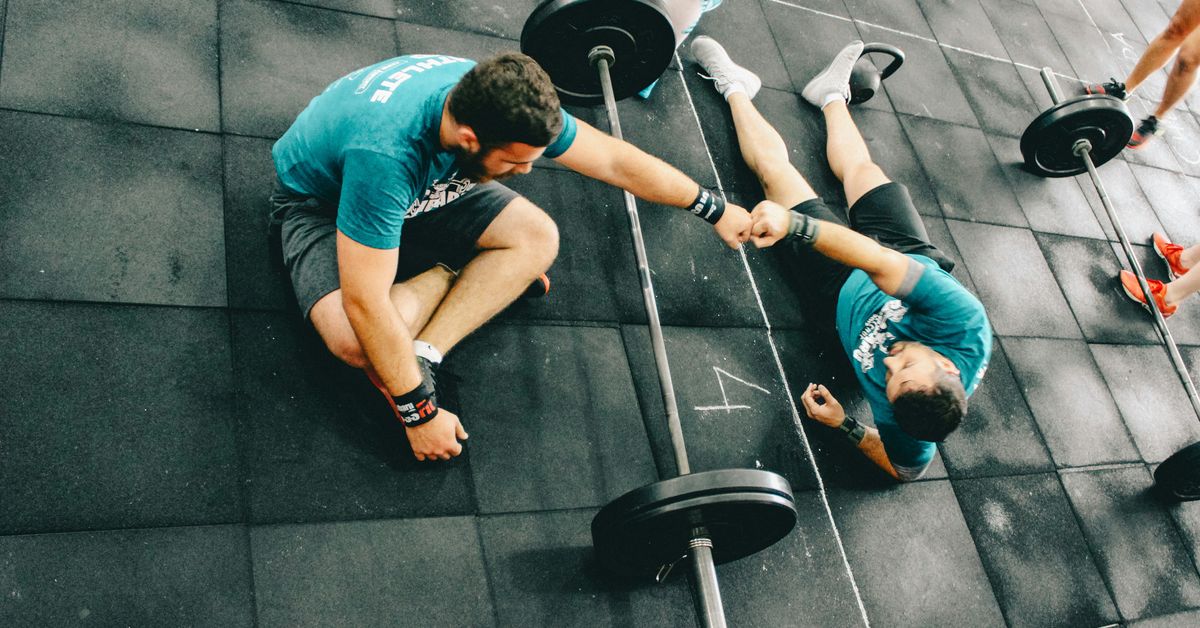Introduction: The Overlooked Edge
In the high-stakes world of sports, talent and physical prowess often steal the spotlight. Coaches and commentators rave about the latest athletic prodigies, showcasing their insane speed and agility. Yet, lurking quietly behind the curtains is a crucial element that many overlook: mental fitness. It’s not the flashy headline, but perhaps it should be.
Consider this: a significant number of athletes at the peak of their physical abilities still struggle with performance anxiety, focus issues, or the pressure of expectations. I remember watching legendary tennis player Serena Williams battling not just opponents but her own mental game during a critical match. The physical skills were undoubtedly there, yet it was her mental fortitude that often led her to victory.
Defining Mental Fitness
Mental fitness can be likened to physical fitness; it involves training the mind to improve performance. But what exactly does that entail? According to experts, mental fitness encompasses various components, including:
- Focus: The ability to concentrate on the task at hand, shutting out distractions.
- Resilience: How well one can bounce back from setbacks and maintain a positive outlook.
- Confidence: Trust in one’s abilities and decisions, crucial for high-pressure situations.
- Mindfulness: Staying present in the moment, which can enhance performance and reduce anxiety.
It strikes me that while athletes often engage in rigorous physical training, discussions about mental training are far less common. Why is that? Perhaps it’s the age-old notion that mental toughness is simply an inherent quality, like a talent for scoring goals or running fast. Spoiler alert: it can be developed.
Why Mental Fitness Matters
When we think of success in sports, we often picture the loud cheers of a crowd, the glory of a gold medal, or the euphoria of a last-second touchdown. But beneath that surface lies a complex interplay of mental strategies that can make or break an athlete’s performance.
The Pressure Cooker
The pressure in competitive sports can be immense. Athletes are not just competing against others; they’re often at war with themselves. A study by the American Psychological Association found that athletes experience anxiety levels comparable to those of people facing life-threatening situations. Can you imagine stepping onto the field knowing that thousands of eyes are on you? That’s not just a physical challenge; it’s a mental one too.
Performance Anxiety and Its Impact
Take, for example, the phenomenon of performance anxiety. It’s one of those sneaky little gremlins that can derail even the most skilled athletes. The fear of failure can lead to a downward spiral: a missed shot, followed by self-doubt, which leads to even more mistakes. It’s as if they’re trapped in a mental labyrinth from which there seems to be no escape.
Experts like Dr. Michael Gervais, a sports psychologist, emphasize the role of mental skills in high-pressure situations. His work with professional athletes has shown that those who practice mental fitness techniques—like visualization, breathing exercises, and positive self-talk—often outperform their peers. It’s fascinating to think that while muscle memory is key, so too is the memory of one’s mental strategies.
Building Mental Fitness: Strategies to Succeed
So, how can athletes cultivate their mental fitness? It’s not as elusive as it may seem. Here’s a comprehensive look at some effective strategies:
Visualization Techniques
Visualization is the practice of mentally rehearsing a performance before it happens. Athletes like Michael Phelps have famously used this technique to prepare for races. By envisioning every detail—from the sound of the starting gun to the feel of the water—athletes can improve their confidence and reduce anxiety. It’s like running a mental marathon before hitting the real track.
Mindfulness and Meditation
Mindfulness is another powerful tool in the mental fitness arsenal. Engaging in mindfulness practices helps athletes stay in the moment, reducing distractions and anxiety. Some studies suggest that even a few minutes of meditation can improve focus and clarity. It’s almost like hitting the reset button on your brain, making space for clear thinking amidst the chaos.
Positive Self-Talk
The words we say to ourselves matter. Positive self-talk can be a game-changer. Instead of succumbing to negative thoughts—“I can’t do this” or “What if I mess up?”—athletes can replace these with affirmations like “I am prepared” and “I’ve got this.” I once overheard a coach telling his player, “Talk to yourself like you would to your best friend.” It’s simple advice but incredibly profound.
Real-World Examples: Mental Fitness in Action
Let’s take a peek into the lives of some athletes who have harnessed the power of mental fitness. Their stories might inspire you—or at least provide some entertaining anecdotes.
Simone Biles: A Case Study in Mental Health
Olympic gymnast Simone Biles made headlines not just for her incredible performances but also for prioritizing her mental health. During the Tokyo 2020 Olympics, she withdrew from several competitions to focus on her well-being. This decision sparked conversations about the importance of mental fitness in sports.
In a post-competition interview, she remarked, “It’s okay to put yourself first… mental health is just as important as physical health.” Biles’s courage to prioritize her mental fitness resonates with many. It reminds us that while the road to success is often paved with physical achievements, it’s essential to take care of our mental state too.
Kevin Love: Breaking the Stigma
NBA star Kevin Love has also been vocal about his struggles with anxiety and panic attacks. His openness about mental health has contributed significantly to breaking the stigma surrounding mental fitness in sports. Love advocates for incorporating mental health resources into athletic programs, emphasizing that mental fitness should be as normalized as physical training.
In one of his interviews, he mentioned, “I learned that it’s okay not to be okay.” It struck me that such candidness from high-profile athletes could lead to a cultural shift in how we perceive mental fitness. If it’s okay for Kevin Love to seek help, then perhaps it’s okay for the rest of us, too.
The Role of Coaches and Support Systems
While athletes are the ones who must face their fears and inner demons, coaches and support systems play a vital role in fostering an environment conducive to mental fitness. Coaches who prioritize mental training can help athletes develop coping strategies, maintain a positive mindset, and build resilience.
Creating a Culture of Mental Fitness
Coaches should encourage open discussions about mental health and offer resources such as access to sports psychologists. Teams that embrace mental fitness as part of their training regimen often see not just improved performance but also stronger team cohesion.
Take, for instance, the New Zealand All Blacks rugby team. Their mental conditioning program includes exercises focused on emotional intelligence and resilience. The result? A team that consistently performs at the highest level, both on and off the field. It’s a lesson for all coaches: mental fitness isn’t just an add-on; it’s a fundamental part of training.
Challenges and Misconceptions
Of course, the road to understanding and implementing mental fitness isn’t without its bumps. There are challenges and misconceptions that need addressing.
The “Tough Guy” Mentality
One prevalent misconception is that seeking help for mental fitness is a sign of weakness. This “tough guy” mentality, especially in male-dominated sports, can discourage athletes from addressing their mental health. It’s as if acknowledging the need for mental training is somehow a betrayal of the physical prowess they’ve worked so hard to achieve.
But let’s be real—if your body is your instrument, your mind is the conductor. You wouldn’t let a conductor ignore the orchestra, would you? It’s important for athletes to recognize that mental fitness training is an essential part of their overall athletic development.
Stigma Surrounding Mental Health
There’s also a lingering stigma surrounding mental health discussions in sports. Athletes may fear that opening up about their struggles will lead to negative perceptions or even career repercussions. The irony is that the more we stay silent, the more we perpetuate the cycle of misunderstanding.
To combat this, we need more advocates like Simone Biles and Kevin Love—athletes who are unafraid to share their stories. The more visibility mental fitness receives, the more athletes will feel empowered to seek help without fear of judgment.
The Future of Mental Fitness in Sports
As we move forward, the integration of mental fitness into sports training programs appears inevitable. With increasing awareness of its importance, we can expect more resources and support systems to emerge.
Innovations on the Horizon
From virtual reality training to mindfulness apps, technology is poised to play a significant role in mental fitness. Athletes will have access to tools that can help them visualize success, practice mindfulness, and track their mental well-being just as they do with their physical training.
Imagine a future where mental fitness is as routine as a morning jog or a weightlifting session. A world where athletes are just as likely to consult a sports psychologist as they are a strength coach. That’s the kind of change we need.
Conclusion: Your Missing Link to Success
In conclusion, mental fitness might just be the missing link to success in sports. It’s not enough to rely solely on physical talent; athletes must also cultivate their mental game. As we’ve seen through the stories of prominent athletes and the insights from experts, mental fitness is not just a buzzword—it’s a vital component of athletic achievement.
So, whether you’re a budding athlete, a seasoned pro, or just a weekend warrior, consider this: your mental fitness is just as crucial as your physical prowess. Embrace it, train it, and watch as it transforms your performance. After all, the mind can be a powerful ally—or a formidable foe. It’s time to make it your greatest asset.













